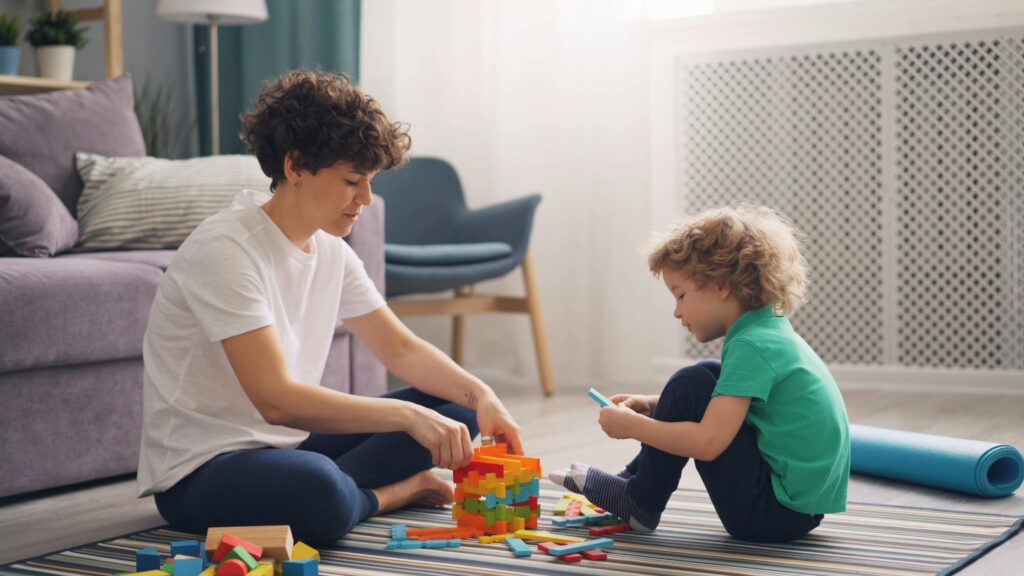Building Strong Parent-Child Relationships for Healthy Early Development
As parents, we all want the best for our children—especially in those crucial early years. But did you know that one of the most powerful ways to support your child’s emotional and brain development is by simply building a strong, loving connection with them?
In this blog post, we’ll explore why the parent-child relationship matters so much, how you can nurture a strong bond with your little one, and what everyday things you can do to help your child grow into a happy, confident human being.
Why Are Parent-Child Relationships So Important?
From the moment a baby is born, they begin learning about the world by watching, listening, and feeling. And guess who they’re learning from first? You.
Parent-child relationships are a child’s first window to understanding how the world works. It’s through this bond that they discover love, safety, trust, and communication. These relationships shape a child’s ability to:
- Cope with emotions like frustration, sadness, and joy
- Build healthy relationships in the future
- Develop self-esteem and confidence
- Learn and grow socially
Think of it this way: if your child’s brain is like a house, your loving relationship with them is the foundation it’s built upon.
The Power of Connection: More Than Just Love
Now, you might be thinking, “Of course I love my child!” And that’s wonderful. Love is the heart of connection—but connection is also something we actively build through day-to-day actions.
Connecting with your child doesn’t have to be elaborate. Often, it’s the small, repeated interactions that really matter.
Here are a few examples:
- Holding eye contact during feedings or playtime
- Responding to their cries or sounds with a soothing voice
- Smiling back when they smile at you
These moments might seem simple, but they send a powerful message to your child: “I see you. I hear you. You matter to me.”
How to Build a Strong Parent-Child Bond in Everyday Life
Building a relationship with your baby—or child at any age—is a journey made up of everyday steps. Here’s how you can start or strengthen that bond, one day at a time.
1. Respond with Sensitivity
When your baby cries, seems fussy, or wants your attention, they’re not trying to be difficult—they’re trying to communicate.
Responding gently and consistently shows them the world is a safe place. You don’t have to be perfect. Just try to notice their needs and respond with patience.
Think of it like a dance—you and your child are learning each other’s rhythms. Whether you’re comforting them after a fall or celebrating with them when they giggle, being emotionally available goes a long way.
2. Spend Special Time Together
Life gets busy. Whether you’re juggling groceries, laundry, or work calls, it can feel like there’s never enough time.
But even just 10 minutes of focused, one-on-one time each day can strengthen your relationship.
Try:
- Reading a book together before bedtime
- Going for a short walk
- Having a “no phones” playtime
During this time, give your undivided attention. No screens, no distractions. These small moments let your child know: “You matter more than anything else right now.”
3. Talk, Listen, and Cuddle
Even if your baby isn’t using words yet, they’re always communicating. Talk to them often—about what you’re doing, how you’re feeling, and what you see around you.
And don’t forget the power of touch. Hugs, cuddles, and gentle touches are just as important as words. They offer comfort and security, especially as your child grows and faces new emotions.
Would you believe a cuddle can lower your child’s stress levels? Science shows it’s true.
4. Be Attuned and Flexible
Every child is different. Some babies like lots of stimulation; others prefer calm and quiet. Pay attention to your child’s personality, preferences, and moods.
If your baby seems overstimulated, maybe they need a break. If your toddler wants space, respect that too. Flexibility shows your child they’re accepted just as they are.
5. Model the Behavior You Want to See
Children are like little mirrors—they reflect what they see. If you want your child to be kind, patient, and respectful, show them what that looks like.
By saying “please” and “thank you,” staying calm under pressure, and apologizing when necessary, you teach your child more than any lesson could.
What If You Don’t Click Right Away?
Let’s get real for a second: not every parent-child relationship feels natural from day one. And that’s okay.
Some parents struggle to bond in the early weeks, especially after a tough birth, postpartum depression, or lack of sleep. It doesn’t mean you’re a bad parent.
The good news? It’s never too late to connect. Start small. Focus on shared smiles, gentle words, or quiet time together. Over time, even the slowest beginnings can turn into beautiful relationships.
If you’re struggling, don’t be afraid to reach out—for support from your partner, friends, or a professional. You’re not alone.
Benefits that Last a Lifetime
When children grow up with strong, caring relationships, they are more likely to:
- Feel safe and secure
- Have better mental health
- Form healthier friendships
- Do well in school
- Become confident and resilient adults
That’s pretty powerful, isn’t it?
Final Thoughts
Building a strong parent-child relationship isn’t about being perfect. It’s about being present, showing love consistently, and learning together as you go.
Children don’t need big, flashy gestures. What they truly need is connection—moments of warmth, attention, and understanding from the people they trust most.
So the next time you read a book with your child, sing a silly song, or kiss them goodnight, remember: these little moments build a lifelong foundation of love and strength.
Need Help Along the Way?
Parenting is a journey—and like any journey, it comes with bumps and detours. If you ever feel lost, overwhelmed, or unsure, don’t hesitate to seek help. Support is a sign of strength, not failure.
Together, with love, patience, and connection, you and your child can grow something truly beautiful.
You’ve got this.
Keywords to Look For:
Parent-child relationship, early child development, bonding with your baby, emotional development in children, building a strong connection with your child, parenting in early years, secure attachment



